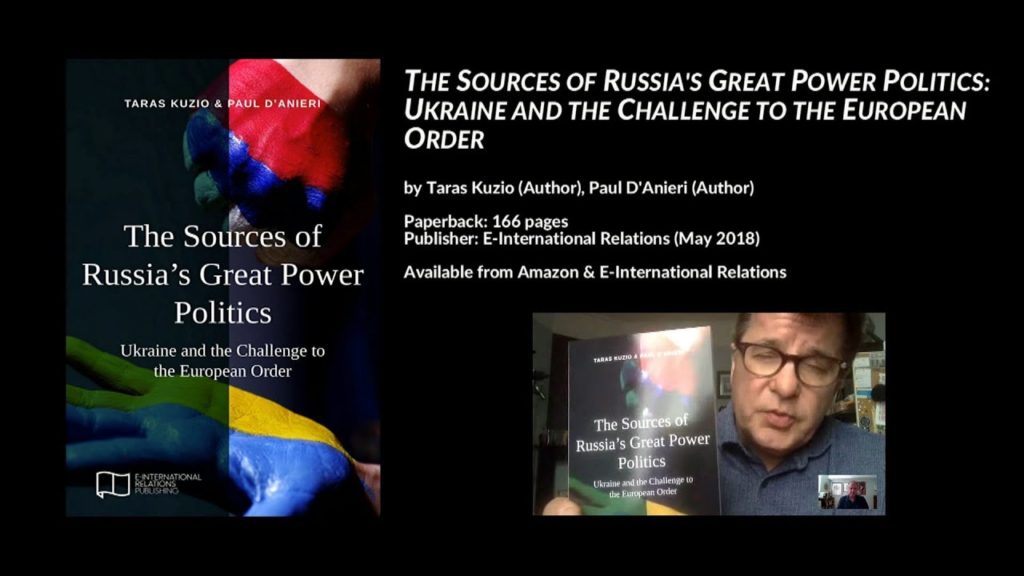
Portraying Ukraine as unstable and on the verge of greater instability has been raised by realist scholars since the early 1990s and continues to dominate much of the pro-Putin western critics of Ukraine and realists writing in the West on the Russian-Ukrainian war, analyst Taras Kuzio, Joint author of The Sources of Russia’s Great Power Politics: Ukraine and the Challenge to the European Order, writes for New Eastern Europe.
Volodymyr Zelenskiy, a leading Ukrainian actor and comedian, has ended months of speculation by announcing he will run in the country’s upcoming presidential election, RFE/RL reports in its Live Blog: Ukraine In Crisis.
 Last month, at a meeting of NATO foreign ministers, the Hungarian envoy did his best to sabotage any improvement in relations between the Western alliance and Ukraine, notes James Kirchick, a visiting fellow at the Center on the United States and Europe at the Brookings Institution, and the author of “The End of Europe: Dictators, Demagogues, and the Coming Dark Age.”
Last month, at a meeting of NATO foreign ministers, the Hungarian envoy did his best to sabotage any improvement in relations between the Western alliance and Ukraine, notes James Kirchick, a visiting fellow at the Center on the United States and Europe at the Brookings Institution, and the author of “The End of Europe: Dictators, Demagogues, and the Coming Dark Age.”
As its excuse the Budapest government is using a recent language-law reform in Ukraine that allegedly threatens the Hungarian-speaking minority, he writes for Democracy Post. By exploiting such a frivolous issue to obstruct NATO support for Ukraine — whose land Russia seized in the first armed territorial annexation on the European continent since World War II — Hungary is doing Moscow’s bidding.
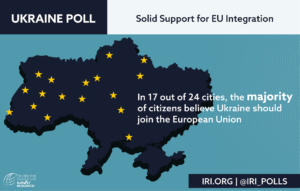 Five years after Russia’s annexation of Crimea, Ukrainians will decide whether to keep or replace their embattled, anti-Russian President, Petro Poroshenko, TIME adds:
Five years after Russia’s annexation of Crimea, Ukrainians will decide whether to keep or replace their embattled, anti-Russian President, Petro Poroshenko, TIME adds:
His Russian counterpart, Vladimir Putin, likely had the vote on his mind when Russia fired on Ukrainian boats in shared waters in November, taking 24 sailors hostage. In the wake of that escalation, Poroshenko pointedly declared that the March vote, which he may lose to a poll-leading challenger who is similarly anti-Russian, would not be postponed. The election will take place as Ukraine’s economy suffers, partially because of an economic blockade of key Ukrainian ports by Russian boats.
The war with Russia creates a difficult task for Ukrainian intellectuals, New Eastern Europe adds. We must take care of decommunisation and de-Sovietisation not only by renaming our streets and cities but also in the consciousness of our citizens. Ultimately, decommunisation is a part of the decolonisation process in Ukraine.
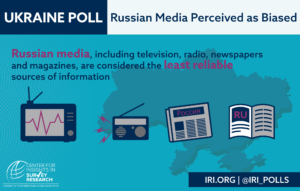
IRI
The decision of Universal Patriarch of Constantinople Bartholomew I to move toward granting autocephaly to the Ukrainian Orthodox Church in September represents an existential threat to Russia’s President Vladimir Putin and his conception of a “Russian World” (“Russkiy Mir”), said analyst Paul Goble:
Consequently, Putin is now much more likely to launch a new wave of aggression against Ukraine; additionally, he may feel compelled to move even more quickly to absorb Belarus into the Russian Federation and to seek new ways to block Moldova from integrating more closely with the West. And these dramatic steps are all the more probable considering the fact that, as many experts believe, Putin may be under the impression that he can revive his flagging popular support at home by employing such strong actions abroad,
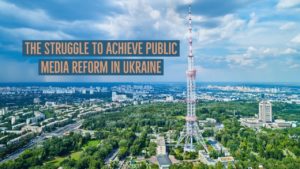 In Soviet times, Ukraine’s media served as a mouthpiece for state interests, the National Endowment for Democracy adds. Since achieving independence, reform efforts have focused on strengthening the integrity of public media, culminating in legislation adopted after the Euromaidan protests that officially transformed Ukraine’s state broadcaster into a public service outlet.
In Soviet times, Ukraine’s media served as a mouthpiece for state interests, the National Endowment for Democracy adds. Since achieving independence, reform efforts have focused on strengthening the integrity of public media, culminating in legislation adopted after the Euromaidan protests that officially transformed Ukraine’s state broadcaster into a public service outlet.
Today, conflicts of interest and insufficient political will to reform within the Ukrainian political elite threaten the future of public media by the obstruction of adequate financing and the implementation of critical regulatory reforms. A hotspot for some of Russia’s most ambitious attempts at disinformation, Ukraine’s public media has an essential role to play in ensuring that the public has access to information that is relevant, fairly reported, and free from distortion and bias.
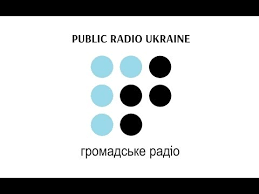 In a forthcoming presentation on The Struggle to Achieve Public Media Reform in Ukraine (RSVP), veteran journalist and radio and TV personality Kyrylo Loukerenko will discuss the role of public media in Ukraine’s democracy and the challenges it faces to becoming a strong and stable institution. Comments by NED Senior Program Officer Joanna Rohozinska will follow:
In a forthcoming presentation on The Struggle to Achieve Public Media Reform in Ukraine (RSVP), veteran journalist and radio and TV personality Kyrylo Loukerenko will discuss the role of public media in Ukraine’s democracy and the challenges it faces to becoming a strong and stable institution. Comments by NED Senior Program Officer Joanna Rohozinska will follow:
Kyrylo Loukerenko, Reagan-Fascell Democracy Fellow
with comments by
Joanna Rohozinska, Senior Program Officer for Europe, National Endowment for Democracy
moderated by
Dean Jackson, Assistant Program Officer for the International Forum for Democratic Studies, National Endowment for Democracy
Thursday, January 24, 2018
3:00 p.m.–4:30 p.m.
1025 F Street, N.W., Suite 800, Washington, D.C. 20004
Telephone: 202-378-9675
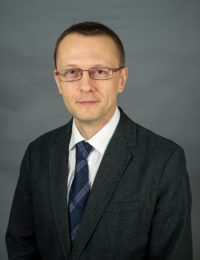 Kyrylo Loukerenko (left), is the executive director and co-founder of Hromadske Radio (“Public Radio” in Ukrainian language), a leading public news broadcasting service that provides timely and balanced news on current affairs in Ukraine. From 2012 to 2013, he worked at TVi TV channel, one of the few voices of responsible journalism at the time, serving as editor of a weekly TV magazine and co-presenter of the daily show “Znak Oklyku” (Exclamation Mark), covering Ukraine’s widely criticized 2012 parliamentary elections, among other topics. In the early 2000s, he worked as a producer and special correspondent for the BBC’s Ukrainian Service in London and Kyiv.
Kyrylo Loukerenko (left), is the executive director and co-founder of Hromadske Radio (“Public Radio” in Ukrainian language), a leading public news broadcasting service that provides timely and balanced news on current affairs in Ukraine. From 2012 to 2013, he worked at TVi TV channel, one of the few voices of responsible journalism at the time, serving as editor of a weekly TV magazine and co-presenter of the daily show “Znak Oklyku” (Exclamation Mark), covering Ukraine’s widely criticized 2012 parliamentary elections, among other topics. In the early 2000s, he worked as a producer and special correspondent for the BBC’s Ukrainian Service in London and Kyiv.
Joanna Rohozinska is the senior program officer responsible for Northern Europe, including Ukraine. She has been engaged in programs in the post-Communist space for 19 years, living and working in a number of countries in the region prior to joining the NED ten years ago. She holds a graduate degree in Russian and European history from the University of Toronto where she focused on nationalism and foreign policy issues within the Russian and Soviet Empires.







